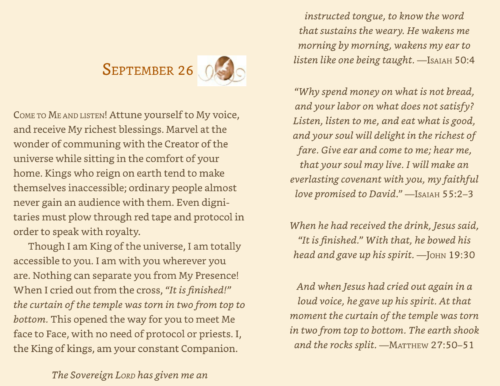Discovering the Little Way
During Richard Rohr’s novitiate year of becoming a Franciscan, he discovered the writings of Saint Thérèse of Lisieux (1873–1897). Father Richard describes Thérèse’s teaching as “a spirituality of imperfection”:
I have often mentioned my love for Thérèse of Lisieux, a French Carmelite nun with minimal formal education, who in her short, hidden life of only twenty-four years captured the essence of Jesus’ core teachings on love. Thérèse was declared a Doctor of the Church in 1997 [1], which means her teaching is seen as thoroughly reliable and trustworthy. She “‘democratized’ holiness,” as Brother Joseph Schmidt (1934–2022) said, “making it clear that holiness is within the reach of anyone willing to do God’s will in love at each successive moment as life unfolds.” [2]
Thérèse came into a nineteenth-century Catholic Church that often believed in an angry, punitive God, perfectionism, and validation by personal good behavior—which is a very unstable and illusory path. In the midst of this rigid environment, Thérèse was convinced that her message, taught to her by Jesus himself, was “totally new.” [3] The gospel of radical grace had been forgotten by many Christians, so much so that Thérèse had to call it “new.”
Thérèse called this simple, childlike path her “little way.” It is a spirituality of imperfection. In a letter to priest Adolphe Roulland (1870–1934), she writes: “Perfection seems simple to me, I see it is sufficient to recognize one’s nothingness and to abandon oneself as a child into God’s arms.” [4] Any Christian “perfection” is, in fact, our ability to include, forgive, and accept our imperfection. As I’ve often said, we grow spiritually much more by doing it wrong than by doing it right. That might just be the central lesson of how spiritual growth happens, yet nothing in us wants to believe it.
If there is such a thing as human perfection, it seems to emerge precisely from how we handle the imperfection that is everywhere, especially in ourselves. What a clever place for God to hide holiness, so that only the humble, “little,” and earnest will find it! A “perfect” person ends up being one who can consciously forgive and include imperfection rather than the ones who think they are totally above and beyond imperfection. It becomes rather obvious once we say it out loud.
Near the end of her life, Thérèse explained her little way to her sister, and this became part of her autobiography Story of a Soul. In contrast to the “big way” of heroic perfectionism, she teaches, in essence, that as a little one “with all [her] imperfections,” God’s love is drawn toward her. God has to love her and help her because she is “too small to climb the rough stairway of perfection.” [5] With utter confidence, she “believed herself infinitely loved by Infinite Love.”
A Gospel of Humility
In this talk, Richard unpacks the parable of the tax collector and the Pharisee (Luke 18:9–14), showing how Jesus affirmed a spirituality of imperfection:
With this parable, Jesus invites us to struggle with the contrast between a spirituality of perfection and what I’m calling a spirituality of imperfection. Notice the beginning lines: “Then he spoke this parable, to some who trusted in themselves, that they were righteous and therefore despised others. ‘Two men went up to the Temple to pray, one a Pharisee, the other a tax collector’” (Luke 18:9–10). Jesus, a consummate Jew, uses examples from his own culture and time. According to common definitions of the day, the Pharisees are the good guys and tax collectors are the bad guys. The tax collectors are those who have totally aligned with the Roman Empire, charging money to their own Jewish people, and giving it to the Empire. No one likes the tax collectors, and everyone looks up to the Pharisees. The Pharisees are simply religious people trying to obey the law, just like faithful Catholics or Bible-reading Protestants today. And as always, Jesus, with his nondual way of thinking, turns it all on its head.
“The Pharisee stood and prayed thus with himself, ‘God, I thank you that I am not like other people. Extortioners, adulterers, or even this poor tax collector here. I fast twice a week. I give tithes of all that I possess’” (18:11–12). None of us would be so foolish as to state our spiritual credit so forthrightly, but we do feel it inside. We think: “I’m a good person. I don’t steal; I don’t cheat.” We’ve all fashioned our positive, superior self-images on why we’re right and why we’re good. In contrast, “The tax collector, standing afar off, would not so much as raise his eyes to heaven. Instead, he beat his breast, saying ‘God be merciful to me, a sinner.’” Jesus said, “This man went down to his house justified—rather than the other” (18:13–14).
This repositions the whole role of religion. Didn’t most of us think that it’s all a meritocracy? I certainly did! Many religious people think that it’s all a merit badge system—all achievement, accomplishment, performance, and perfection. The good people win and the bad people lose. Of course, once we cast anything as a win-lose scenario, the irony is that everybody loses. Why can’t people see that competitive games are not the way to go?
I’m convinced that Jesus’ good news is that God’s choice is always for the excluded one. Jesus learned this from his Jewish tradition: God always chooses the rejected son, the barren woman, the people enslaved in Egypt or exiled in Babylon. It’s not a winner’s script in the Bible—it’s a loser’s script. It’s a loser’s script where, ironically, everybody wins.
